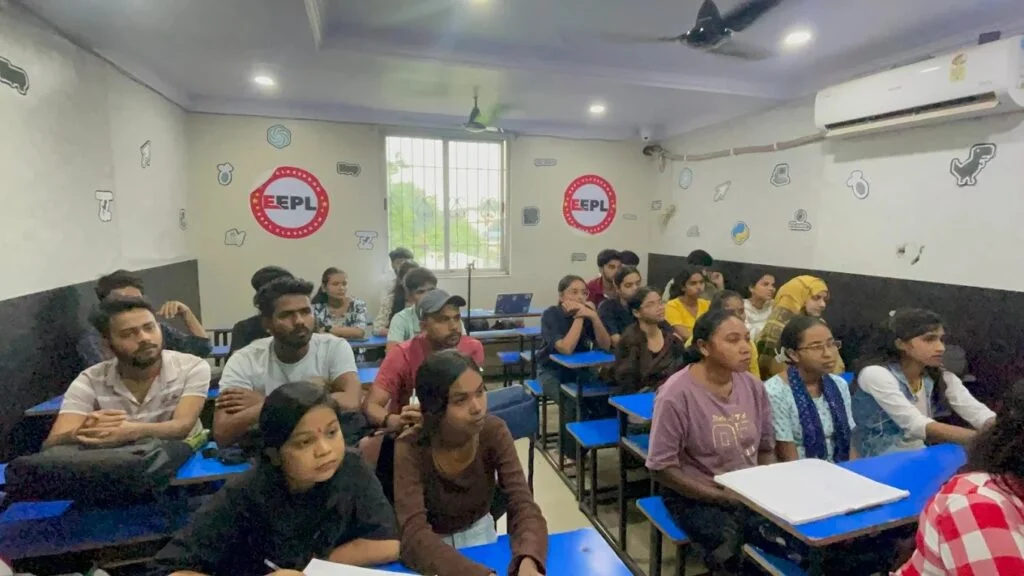The Joint Entrance Examination (JEE) is one of the most prestigious and challenging engineering entrance exams in India. It’s a gateway for students aspiring to enter premier engineering institutions like the Indian Institutes of Technology (IITs), National Institutes of Technology (NITs), and other top engineering colleges. The exam is divided into two parts: JEE Mains and JEE Advanced. This guide will walk you through everything you need to know about these exams.
1. Understanding JEE Mains
What is JEE Mains?
JEE Mains is the first step in the JEE examination process. Conducted by the National Testing Agency (NTA), it serves as the qualifying exam for JEE Advanced and is also the entrance exam for admissions to NITs, IIITs, and other centrally funded technical institutions.
Exam Structure:
- Subjects: Physics, Chemistry, and Mathematics.
- Mode of Exam: Online (Computer-based test).
- Number of Papers: Two (Paper 1 for B.E./B.Tech, Paper 2 for B.Arch/B.Planning).
- Duration: 3 hours.
- Question Type: Multiple-choice questions (MCQs) and numerical value-based questions.
Eligibility Criteria:
- Educational Qualification: Candidates must have completed their 10+2 or equivalent examination with Physics, Chemistry, and Mathematics as their main subjects.
- Age Limit: There is no age limit for appearing in JEE Mains.
- Number of Attempts: Candidates can attempt JEE Mains a maximum of three times in consecutive years.
Syllabus:
The syllabus for JEE Mains is based on the NCERT curriculum of Classes 11 and 12, covering topics from Physics, Chemistry, and Mathematics.
Scoring and Results:
- Scoring: Each correct answer awards 4 marks, while each incorrect answer results in a deduction of 1 mark (negative marking).
- Results: The NTA releases the results in the form of a percentile score, and the All India Rank (AIR) is announced after the completion of all sessions.
Importance of JEE Mains:
- Gateway to JEE Advanced: Only the top 2,50,000 rank holders in JEE Mains are eligible to appear for JEE Advanced.
- Admission to NITs/IIITs: The ranks obtained in JEE Mains are used for admission to NITs, IIITs, and other GFTIs through the centralized counselling process (JoSAA).
2. Delving Into JEE Advanced
What is JEE Advanced?
JEE Advanced is the second stage of the JEE examination and is conducted by one of the seven zonal IITs under the guidance of the Joint Admission Board (JAB). It is the sole examination for admission to the IITs.
Exam Structure:
- Subjects: Physics, Chemistry, and Mathematics.
- Mode of Exam: Online (Computer-based test).
- Number of Papers: Two compulsory papers (Paper 1 and Paper 2).
- Duration: 3 hours for each paper.
- Question Type: A mix of MCQs, numerical-based questions, and match-the-following questions.
Eligibility Criteria:
- JEE Mains Qualification: Candidates must qualify in JEE Mains and be among the top 2,50,000 rank holders.
- Age Limit: Candidates should have been born on or after October 1, 1999 (with a 5-year relaxation for SC, ST, and PwD candidates).
- Number of Attempts: Candidates can attempt JEE Advanced a maximum of two times in two consecutive years.
- Educational Qualification: Candidates must have completed their 10+2 or equivalent examination with the required subjects.
Syllabus:
The syllabus for JEE Advanced is broader and more challenging than JEE Mains, covering advanced topics in Physics, Chemistry, and Mathematics.
Scoring and Results:
- Scoring: The marking scheme varies each year, with different marks awarded for correct answers, and negative marking for incorrect ones in some sections.
- Results: The results are declared in the form of a rank list, and only those who qualify are eligible for IIT admissions.
Importance of JEE Advanced:
- IIT Admissions: JEE Advanced is the only gateway to secure a seat in the prestigious IITs.
- Special Programs: Some IITs offer unique programs that are only accessible through JEE Advanced.
3. Preparation Tips for JEE Mains and Advanced
Understanding the Syllabus:
- Thoroughly go through the NCERT textbooks for Classes 11 and 12.
- Focus on conceptual understanding and application-based learning.
Consistent Practice:
- Regularly solve previous years’ papers and take mock tests.
- Analyze your performance to identify and work on weak areas.
Time Management:
- Create a well-structured study plan, allocating specific time slots for each subject.
- Prioritize high-weightage topics, but ensure a balanced preparation across all subjects.
Coaching vs. Self-Study:
- Choose a method that suits your learning style. While coaching provides structured guidance, self-study offers flexibility and self-paced learning.
Staying Motivated:
- Maintain a positive mindset and stay focused on your goal.
- Take regular breaks to avoid burnout and keep yourself refreshed.











